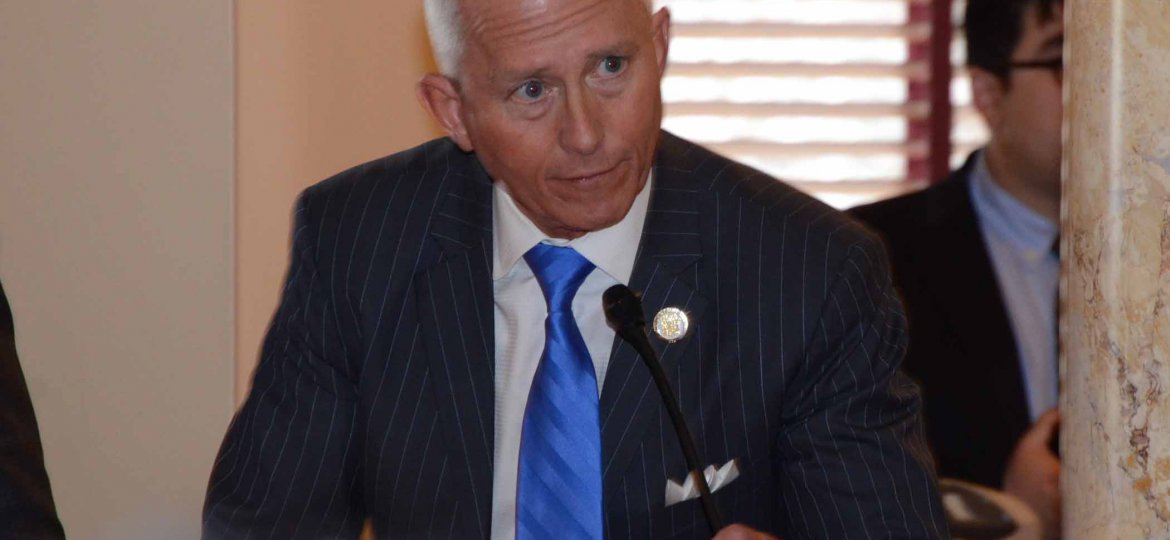
Will Fund Transportation to VA Hospitals, Area Doctors
TRENTON – Two bills sponsored by Senator Jeff Van Drew and Senator Patrick Diegnan aimed at addressing obstacles to healthcare faced by veterans were approved today by the Senate Budget and Appropriations Committee. The bills would provide funding to ensure appropriate transportation for veterans traveling to VA hospitals, and to prevent residents of state-operated veterans’ nursing homes from having to pay for transportation to doctor appointments outside of the facility.
“One of the major issues for veterans living in South Jersey is that they must travel for hours to get to VA hospitals for care. One of the most painful challenges we’ve heard is that some of the elderly veterans make this trip without timely access to restrooms. We have to do better,” said Senator Van Drew. “We’ve been pushing for a pilot program in our area to allow veterans to get treatment at community hospitals covered by the VA. Absent an approval by the federal government of the program, we have to take steps at the state level to improve circumstances for our residents. This bill is not the answer, but it is a way to address the current problem faced by veterans until we reach the broader goal.”
“This is about treating veterans with compassion and decency. This bill will make sure those who must travel a significant distance to a veterans’ health care facility have an appropriate means of transportation funded by the state,” said Senator Diegnan. “This is the right thing to do for those who have served this country with dignity, in what may be their greatest time of need.”
The first bill (S2594) would require the Department of Military and Veterans’ Affairs to create a program to provide state funding to counties and municipalities to provide transportation services to veterans that require transport to a US Department of Veterans Affairs medical center or facility. Under the bill, counties and municipalities receiving funding would provide for the transportation of veterans, on vehicles furnished with functioning bathroom facilities, to the nearest VA medical center. A county or municipality receiving aid could also incorporate the funding into an existing transportation service operated to provide transportation services to veterans in accordance with this bill. The bill appropriates $500,000 for the purpose of providing grants to counties and municipalities to purchase vehicles having functioning bathroom facilities to provide transportation services to veterans.
A second measure (S2592) would provide state funding to support the cost of transportation to doctor’s offices for residents living in state-operated veterans’ nursing home facilities. Senator Van Drew introduced the legislation after the state Department of Military and Veterans Affairs began enforcing a policy in which residents living in these facilities who choose to see an outside doctor – in cases where the veterans’ home has a physician available to provide the medical care in-house – are charged a fee for transportation to the office. Under the bill, funding for transportation would be provided by the state Department of Military and Veterans’ Affairs through appropriations for the operation of each of the state’s three long-term care nursing homes for veterans and their spouses, located in Paramus, Menlo Park and Vineland.
“This bill will provide the funding necessary to reinstate free transportation for veterans at the Vineland facility and the other two veterans’ homes in the state,” said Senator Van Drew. “These are men and women who have fought for our freedoms and now are depending on us to ensure they get the right care.”
“We have to make sure that our state’s policies are not creating obstacles for veterans who are seeking access to health care,” said Senator Diegnan. “This will cover the cost of transportation for some our most vulnerable residents who live in veterans’ homes operated by the state, reinstituting a practice that previously existed in these facilities.”
The bills were approved unanimously. They next go to the full Senate for a vote.

